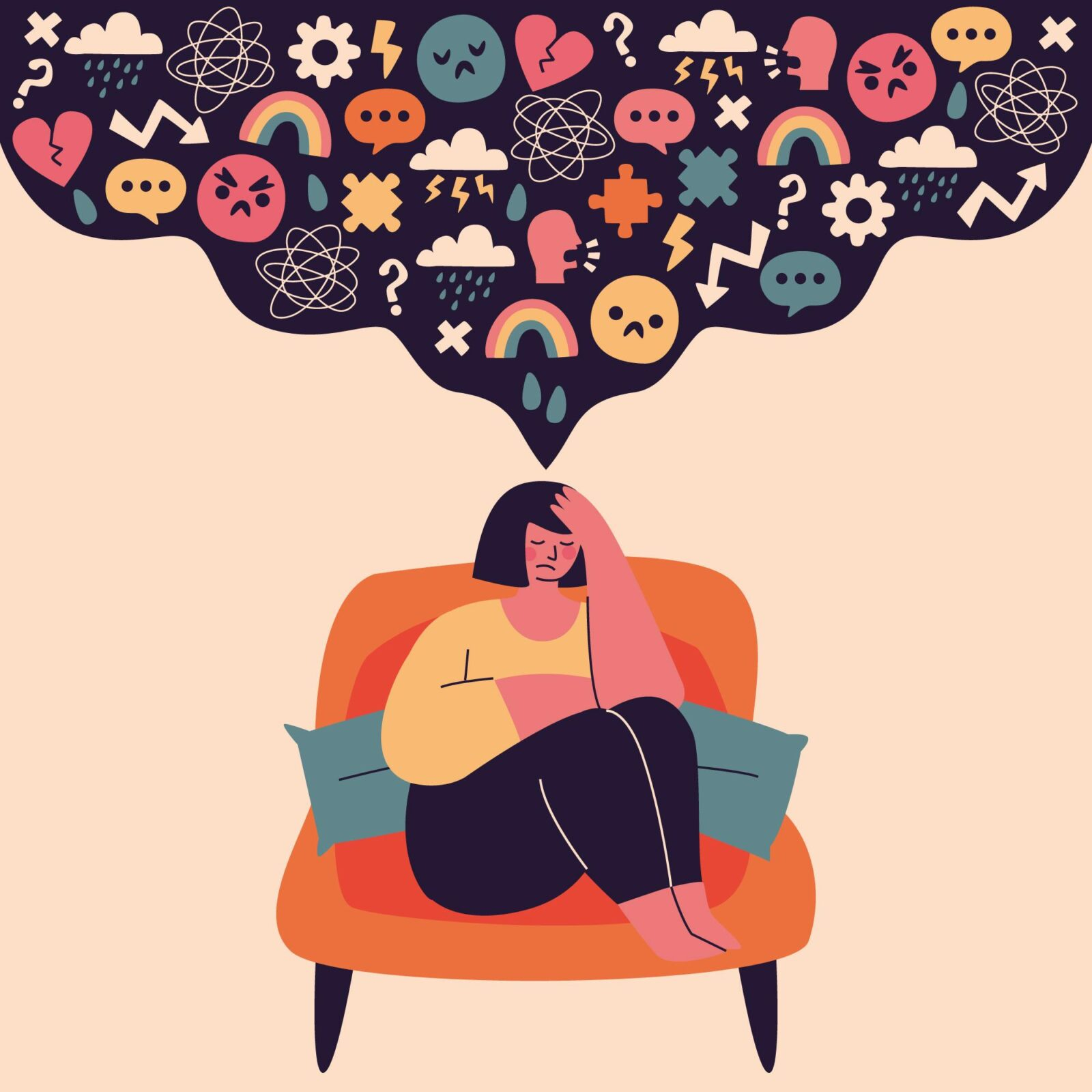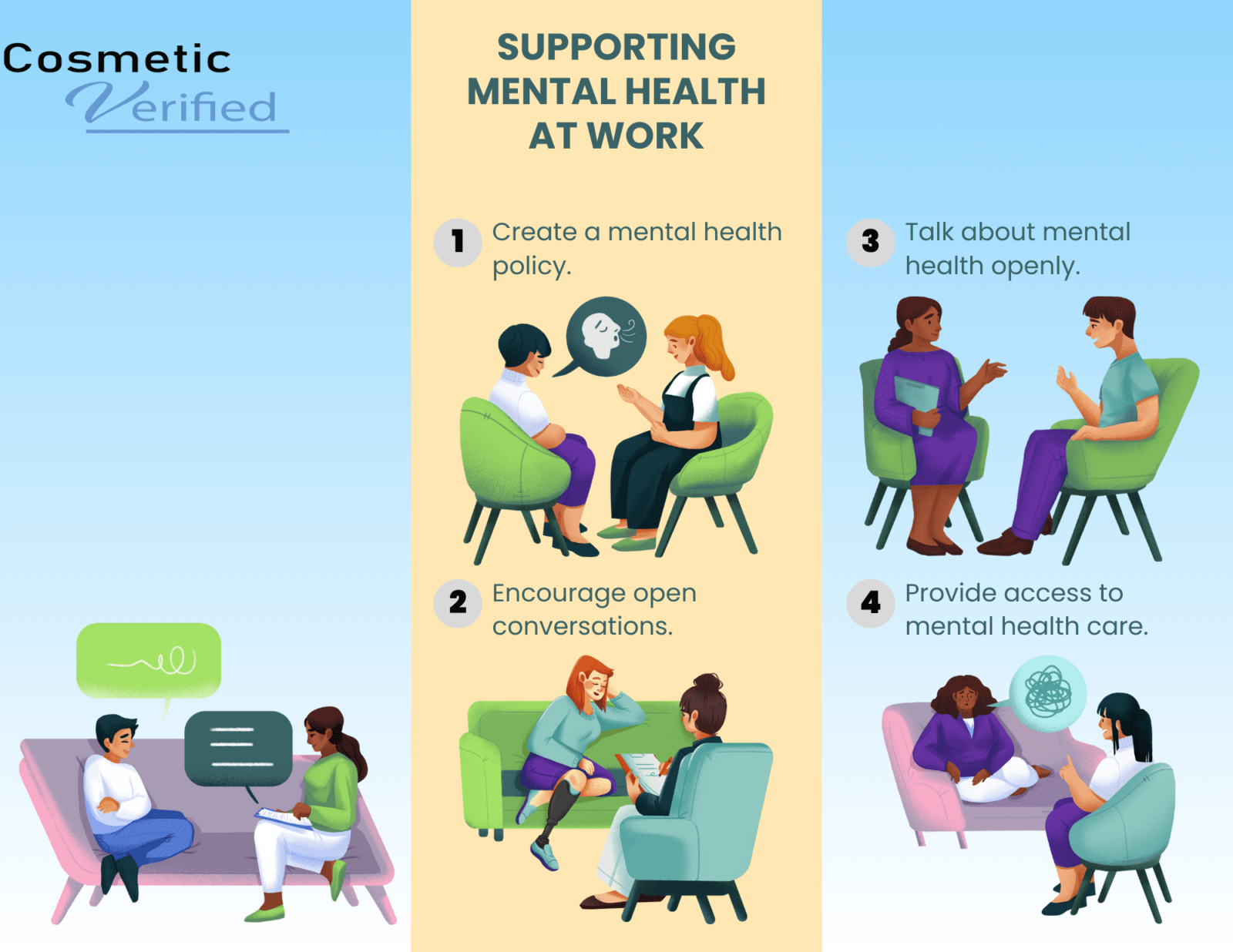Mental health & well-being
You may have noticed that in recent years mental health has gained recognition as a critical area of health, illuminating an aspect of well-being that had (sadly) previously been quite often overlooked. Thankfully, this has changed and as time has passed, so have the number of treatments and help available to us all. In this post, we’ll examine the importance of mental health, the obstacles many individuals encounter, and the measures we can implement to enhance mental well-being.
Why is mental health important?
Would you class mental health as just having negative thoughts? In fairness that’s also true, but that’s just one of the dimension. It’s a balance of emotional, psychological, and social well-being which affects how we think, feel, and act. This in turn influences how we handle stress in our lives, interact with friends, family, strangers and make decisions. It’s not just the absence of depression; it’s the presence of positive characteristics like resilience, self-awareness.
To paint the picture, imagine carrying an invisible burden on your shoulders. One so heavy that it can literally stop you from getting out of bed, interacting with others or even looking after yourself.
It can lead to a range of issues, like anxiety and depression to more severe conditions. These conditions affect every aspect of a person’s life, including work, relationships, and overall quality of life. Moreover, it is a basic human right because without a healthy mind we have no healthy lives.
Facts & Statistics
- Women are nearly twice as likely to suffer from major depression than men. However, men and women are equally likely to develop bipolar disorder.
- Suicide represents 1 in 100 deaths globally. It is sadly the fourth leading cause of death in young people between 15-29.
- Generally, people with severe mental disorders die 1 to 2 decades earlier than the general population.
- Approximately 1 in 6 people report experiencing a common mental health problem (like anxiety and depression) in any given week in England.
- Abuse, trauma, social neglect or isolation are some of the top leading causes of poor mental health.

Common challenges
We mentioned earlier that poor mental health is like an invisible burden. And it truly, is as it can affect anyone, regardless of age, gender, or background with often little to no signs…
Some of the most common mental health issues include:
Anxiety Disorders: Characterised by excessive worry or fear, anxiety disorders can be debilitating, affecting daily functioning. Symptoms might include restlessness, a rapid heart rate, or trouble concentrating.
Depression: More than just feeling sad, depression is a serious mood disorder that affects how you feel, think, and handle daily activities. Symptoms may include persistent sadness, loss of interest in activities, and changes in appetite or sleep patterns.
Stress: While stress is a normal part of life, chronic stress can lead to significant health problems, both mental and physical. Prolonged stress can trigger anxiety, depression, and even hair loss in some cases.
Bipolar Disorder: This condition involves extreme mood swings that include emotional highs (mania or hypomania) and lows (depression). These mood swings can affect energy levels, behaviour, and the ability to carry out daily tasks.
Post-Traumatic Stress Disorder: More commonly known as PTSD, this can develop after exposure to a traumatic event. Symptoms include flashbacks, severe anxiety, and uncontrollable thoughts about the event.
The stigma surrounding mental health
It has to be said that one of the biggest barriers to addressing mental health issues is the stigma associated with them.
Since this is a health concern that has only gained prominence in the last two decades, many people (from various generations and backgrounds), with mental health challenges feel ashamed or afraid to seek help due to societal attitudes.
This stigma can, and still is to a large degree, preventing individuals from getting the support they need. Leading to worsening symptoms and, in some cases, extreme consequences. Changing this narrative is crucial, and a big reason behind why we decided to write an article on the subject.
Just as we wouldn’t hesitate to seek help for a broken bone, we shouldn’t hesitate to seek help for a mental health issue. Thankfully, with more and more people using social media to highlight this growing health concern and news coverage discussing this issue – we can move in a positive direction. There are even growing numbers of organisations and companies around the world listening and addressing this.

The link between exercise & nutrition for mental health
If you haven’t read our health guide on nutrition and exercise, we highly recommend it as it will be relevant to this part.
The link between nutrition, exercise, and mental health is widely recognised as a vital aspect of overall well-being, highlighting the profound impact that what we eat and how we move can have on our minds. It’s not a silver bullet but it certainly goes a long way. A balanced diet rich in nutrients, for example, helps support brain function and regulate our mood; foods high in omega-3 fatty acids, such as fish, and those rich in antioxidants, (fruits and vegetables), help reduce inflammation and promote brain health. Eating whole grains, lean proteins, and other key nutrients ensures that your body and brain have the fuel they need to function optimally, which helps you get through everyday life and can help manage stress, anxiety, and depression. Essentially it’s one of the different factors to pay attention to, but an important one.
Physical exercise
On the other hand, regular physical exercise has been proven to be one of the most effective natural ways to boost mental health, as it stimulates the release of endorphins and serotonin. These are naturally produced chemicals in the brain that enhance mood and reduce feelings of depression and anxiety. This is partly why so many doctors and health experts advocate that we should all aim to walk 10k per day…
Exercise also helps with sleep quality, increases energy levels, and helps manage stress, all of which additionally contribute to better mental health. Together, good nutrition and regular exercise create a powerful synergy that supports both physical and mental well-being. By integrating healthy eating habits and consistent physical activity into your daily routine, you not only take care of your body but also significantly enhance your emotional and psychological resilience.
Resources available for help
If you have ever wondered where you could seek help from at no cost, there are thankfully many organisation offering free advice and support. We’ve collated a number of relevant organisations for you so you don’t have to go looking too far. Below you’ll find who they are and a brief description of what they do/offer to help in both the UK and in the US.
In the UK
NHS Mental Health Services: Offers therapy, counseling, and other health support through the National Health Service.
Samaritans: Provides 24/7 emotional support via phone (116 123) or email.
Mind: Offers information, support, and services for various mental health issues.
Anxiety UK: Provides support for those with anxiety disorders.
Rethink Mental Illness: Offers support and advice for people living with mental illness.
CALM (Campaign Against Living Miserably): Supports people with a helpline, online community, and webchat.
Mental Health Foundation: Provides useful information and resources.
Shout: Offers free 24/7 text support (text SHOUT to 85258).
In the US
National Alliance on Mental Illness (NAMI): Provides education, support, and advocacy for individuals and families affected by mental illness.
Mental Health America: Offers screening tools, information, and resources.
Substance Abuse and Mental Health Services Administration: (SAMHSA): Provides a national helpline and treatment locator.
Crisis Text Line: Offers 24/7 support via text (text HOME to 741741).
National Suicide Prevention Lifeline: Provides 24/7 free and confidential support (1-800-273-8255).
Psychology Today: Offers a therapist directory to find local professionals.
7 Cups: Provides free online counseling and support groups.
